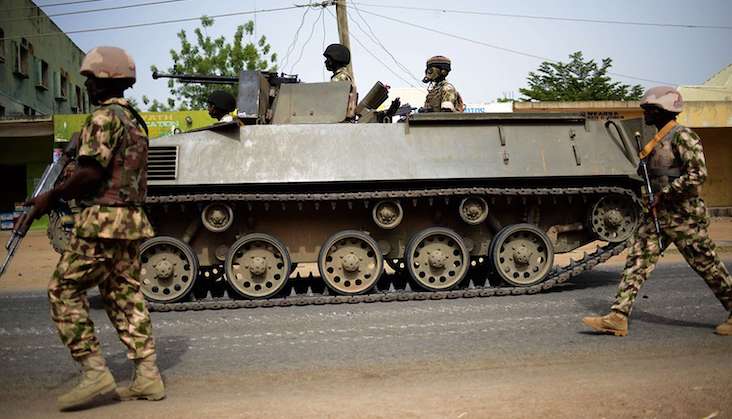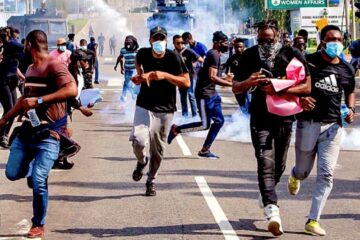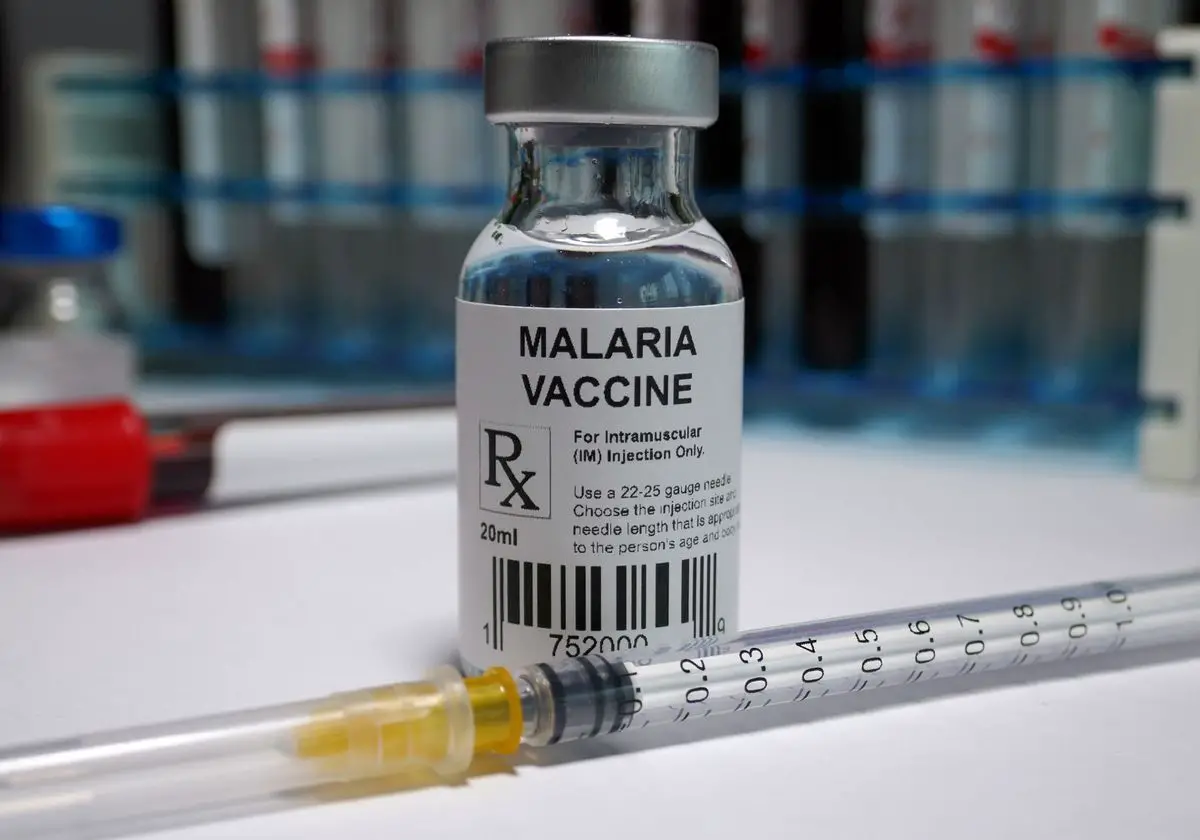
Reports by Medicins Sans Frontières that the Nigerian military had killed and wounded children in an airstrike on 18 February in the village of Nachadé, in neighbouring Niger Republic will focus attention again on the human costs of Abuja’s security strategy. From the US sales of Super Tucano aircraft, the arrival of Russia’s Wagner Group into the area and China’s sale of mobile artillery and Bigfoot MRAPs, the increasing military sophistication of Nigeria and the Sahel continues apace.
Nigeria’s military says it is investigating the Nachadé incident.
It may also raise questions about arms supplies to Abuja by countries such as the US which have, albeit inconsistently, premised arms supplies on their assessments of human rights conditions.
Under then president Barack Obama, the US’s sale of Super Tucano aircraft to the Nigeria’s Air Force was put on hold in 2015 after it confirmed it had accidentally bombed a refugee camp in Rann, close to the Cameroonian border.
Then president Donald Trump lifted the suspension, but the US senate last year put a hold on the sale of second-hand Super Cobra attack helicopters to Nigeria, again on human rights grounds. These hold-ups have prompted officials to widen their range of military suppliers.
Competition is heating up in the arms supply and security business in Africa as Western countries rethink their engagement. France’s planned withdrawal from Mali in the wake of the arrival there of some 1,000 fighters from Russia’s Wagner Group is a sign of some of the changes to come.
Along with Russia, Turkey and the Gulf States have become big arms suppliers to African states such as Ethiopia, Sudan, Egypt and Somalia. But the fastest growing supplier is China, which can draw on its economies of scale and its increasing technical sophistication. And it has made significant inroads in Africa’s biggest market.
China’s arms companies aim to become the dominant supplier to Nigeria over the next three years, overtaking both Russia and the US, according to multiple defence industry sources.
Shipments in the past year to Nigeria of armoured personnel carriers, battle tanks and light tanks, as well as various types of artillery from China suggest it is on the way to becoming Abuja’s supplier of choice.
These arms sale are also an important symbol of China’s growing security role in Africa. It also supplies troops, engineers and other technical experts to UN peacekeeping missions across the continent.
Beijing also maintains far high levels of military personnel in its embassies in Africa than its international peers. This could give it an edge in terms of military contacts and sales campaigns.
Western countries, such as the US, Britain and France, have focused more on the high-end of the arms market in Africa – jet fighters and bombers, armed naval vessels and high-tech surveillance equipment. But here too, China is competing on cost, if not reliability.
As successive Nigerian governments have struggled to contain Islamist insurgents in the north-east, bandits and kidnappers in the north-west and herder-farmer clashes in the Middle Belt, the country has become the biggest arms importer in Africa.
But Nigeria, like South Africa, has its own military industries that it wants to build up again after many shut down or dramatically cut production. The Defence Industries of Nigeria produces armoured vehicles and ordnance at its factory in Kaduna and has been tasked by the federal defence ministry to expand its product range.
Abuja is also planning a joint-venture with Indonesia to manufacture weapons and aircraft. With Nigeria’s security threats multiplying, the cost of equipment, and the local jobs that arms offset deals could create, are critical.
Lack of accountability
Local anti-corruption groups have warned about the lack of accountability in most arms deals, particularly this which involve local cost-offset arrangements where the supplier agree to transfer technology to local manufacturers over an extended period.
Such arrangements were at the heart of South Africa’s $6bn arms scandal in the late 1990s; the reverberations still echo around national politics, specifically the grand corruption charges against former president Jacob Zuma.
It was Western arms manufacturers – British Aerospace and France’s Thalys – that dominated the South African deal. But now China and Russia are the main suppliers in Africa.
China’s arms industry has the overwhelming advantage of undercutting the prices of most of its competitors.
Nigeria is the largest importer of military equipment in sub-Saharan Africa, and the country’s military budget is greater than the combined armed force spending of the rest of West Africa. Figures from 2019 show that 0.5% Nigeria’s GDP went towards military spending increasing to an estimated 0.69% last year.
The security budget has steadily increased since Buhari’s first term in 2015 as has the total national budget. In 2015, the national budget was N4.41trn, and the security sector was allocated N989bn. By 2021, with the national budget at N13.6trn, defence and security first received N1.96trn, with an additional N722bn added through the supplementary budget.
There are questions about much the higher defence budgets have translated into better equipment and supply logistics for the troops on the ground. A 2021 study conducted by Temitope B. Oriola, a Nigerian security expert and associate professor at the University of Alberta, found a mixed picture but that there had been some improvements.
This follows some media reports troops being left stranded in the field with broken equipment and no new supplies. It said: “The evidence suggests that availability of weapons varies by unit and the agency of commanders.”
Equipment from China
Defence specialists predict that ‘China will be the largest foreign exporter of military equipment to Nigeria between 2020 and 2024 [as there have been] no recent reported arms deals of this size between a Western nation and Nigeria.’
Since 2014, the Nigerian army has been using CS/VP3 Bigfoot MRAPs (Mine Resistant Ambush Protected Vehicles) from China’s Poly Technologies, one of the country’s largest arms exporters.
In late 2021, Nigeria ordered and received more of these tanks. Another Chinese company, Norinco, is also a leading supplier to Nigeria’s military. Following a $152m contract in 2019, Nigeria received its first batch of Norinco battle tanks and self-propelled artillery in April 2020.
This is despite a row over claims by the Paris-based Africa Intelligence group that some of the Norinco equipment had technical problems shortly after arrival. It reported that Chief of Army Staff General Ibrahim Attahiru in March 2021 had “warned Norinco that it could be excluded from future equipment supply contracts after mobile units it supplied ran into technical problems shortly after they were delivered to the army last November.”
When the story was repeated by local publication African Military Blog, the Nigerian army’s director of information, Brigadier General Mohammed Yerima dismissed it as a “work of the author’s imagination”. The African Military Blog quickly apologised and retracted the claim.
And Nigeria’s army is still very much in business with Norinco.
At the end of last October, 60 more Type-89 tracked infantry fighting vehicles (IFVs) were received from Norinco, and inducted into the Nigeria army service at the Army School of Infantry, Jaji, Kaduna.
The relationship looks set to expand further. Their closest rivals are likely to be Russia’s arms sales teams who are stepping up efforts to expand operations in Nigeria as part of their West Africa strategy.


















